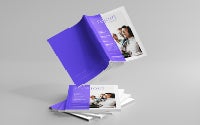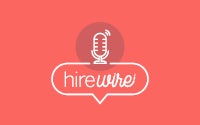Ever been guilty of these 8 classic interview mistakes?

Here are a few classic interview errors to avoid – and some tips to make sure they don’t happen to you…
- Not doing your research
The biggest mistake all our experts mentioned is going into an interview unprepared. This might mean failing to research the company, not taking the time to understand the role, or not knowing who you’re meeting. But it could also mean not planning out what you’re going to talk about.
No matter how experienced and how skilled you are, never assume you can just wing it. The worst thing you can do is go in under-prepared, not knowing who you’re meeting and not having some answers prepared. Have four or five answers ready for the key questions that you can reasonably expect might come up. - Talking about the wrong things
A related mistake is failing to talk about topics or experiences that best showcase your experience and knowledge. For job seekers who operate in a very technical space, it’s vital to demonstrate your expertise in detail. Give detailed examples of things you really know about – don’t be tempted to showcase your involvement with products or regulatory issues that happen to be hot topics but where you had minimal involvement.
It’s far better to discuss a more minor or less on-trend topic if it gives you the chance to really shine. Spend some time beforehand thinking hard about which examples showcase that you can make a real difference. - Forgetting the connection between CV and interview
Understandably, your interviewer may see your CV as a prompt for the conversation they will have with you. So, if you’ve put things on there that are more aspiration than hard fact, you could get found out at the interview.
Don’t put anything on your CV that you’re not prepared to talk about or that doesn’t show off your skills in the best light. Don’t have anything on there that you’re not comfortable talking about. Your CV is not a working concept – it’s a factual record. Use it to highlight what you’ve done and achieved, not to set out things you’re hoping to work towards. - Not listening
A common mistake in interviews is that people go in with a pre-prepared script and just parrot their answers without really listening to the questions. You can’t rely on one-size-fits-all answers to get you through. - Turning up late
This obvious no-no can easily happen if you’ve not taken the time to work out your route to the venue, and to find exactly whereabouts within it you’ve got to go. Plan your journey and allow yourself at least 10 minutes in reception ahead of the interview time. - Forgetting the communication essentials
Sometimes, because of nerves or because they’re so focused on the task, even highly skilled or experienced people can overlook the communication essentials that allow any human interaction to run smoothly – building rapport, taking an interest, positive body language. Don’t forget to hold eye contact, and take an interest in the interviewer’s background. Always open and close with a firm handshake.
You need to build a rapport but also have a bit of social awareness. If you’re too formal, you’ll sound like a robot and there’ll be no rapport. Your interviewer needs to believe you can do the job, of course; but they also want to be able to picture themselves working in an office or perhaps even at a social event with you. At the same time, an interviewee who becomes too relaxed could be off-putting, too. The trick, as always, is to take one’s cue from the interviewer. - Not asking questions
Ideally your questions will be positive and employer-focused – not too provocative or self-focused – so you need to have something more than just ‘Where’s the nearest gym?’
Ask questions that make your interviewer enthusiastic – for example, bring up something they’ve talked about in the interview and turn it back on them: “It sounds like you’ve got some really exciting clients – what are your plans for developing them in the future / bringing on other clients in that sector?” The interviewer then gets excited because they’re being asked about what they care about, and then they start to sell to you…’ - Not paying attention to hygiene factors
Personal appearance and hygiene can have such an impact on the impression you make. The sense of smell is especially potent here – not just body odour, of course, but making sure you don’t go in to an interview reeking of cigarette smoke, very strong cologne or coffee. If you’re worried about this, ask a friend or partner to check before you go in. Remember to dress professionally, and default to formal rather than casual.
Are you a recruitment professional looking for a new career opportunity? Browse our current vacancies here.
Share this:









